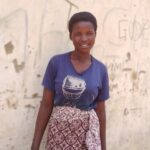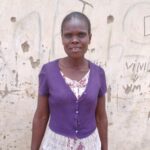The TEAM Girl Malawi project provides complementary basic education and life skills to out of school adolescent girls, and supports them to re-enter primary school, or join vocational or entrepreneurship training. Our participants face high levels of poverty, many coming from child-headed households, early marriage and motherhood, in addition to disabilities which have kept them from mainstream education and limited their life chances.
In January 2023 Malawi was experiencing one of the worst cholera outbreaks in recent years and cases rapidly spread to all districts in the country. One of the worst affected districts was Lilongwe Urban, which is also one of TEAM Girl Malawi’s three focus districts. In order to curb the spread of the disease, the government issued the instruction that schools in Lilongwe were not to re-open following the Christmas break.
This meant that TEAM Girl Malawi’s community-based learning centres were also unable to re-open. The situation was particularly concerning for us as the girls in our programme are highly marginalised, and are especially vulnerable to falling behind in their learning and dropping out before finishing and transitioning onto their next steps.
During the COVID-19 outbreak and related school closures in 2020, we had experienced a similar situation. Many girls in the programme – who had already experienced significant challenges causing them to leave mainstream school previously – reported an increase in anxiety and mental health issues during this period. Others underwent traumatic experiences including gender-based violence and abuse. All of these issues have had a further negative impact on their resilience in the face of challenges, self-esteem and self-confidence.
This time, we were able to draw on our education in emergencies response plan which had proven successful during the COVID-19 emergency. After receiving the news of school closures due to cholera, our team acted immediately to:
- Reinforce safeguarding and child protection checks and reporting pathways in the communities
- Plan catch up classes to take place when centres re-opened so learners did not fall behind in the curriculum
- Prepare home-based learning activities which we would distribute in case prolonged closures became necessary
- Communicate daily information about cholera prevention from the Ministry of Health to class Facilitators using WhatsApp, who then passed on the messages to the girls in a safe, socially-distanced way
- Ensure good supply of hygiene materials so all centres could continue to prevent the spread of cholera once they re-opened
When the government allowed schools to re-open two weeks later, attendance was very low in the first days as most girls were still afraid. However, after a few weeks almost all the girls had returned. Facilitators and the girls appreciated the support which was given to them during the school closure, and they said the home based learning activities helped them to catch up after schools re-opened. Currently learners are preparing to sit their end of term exams and they are expected to do well.


